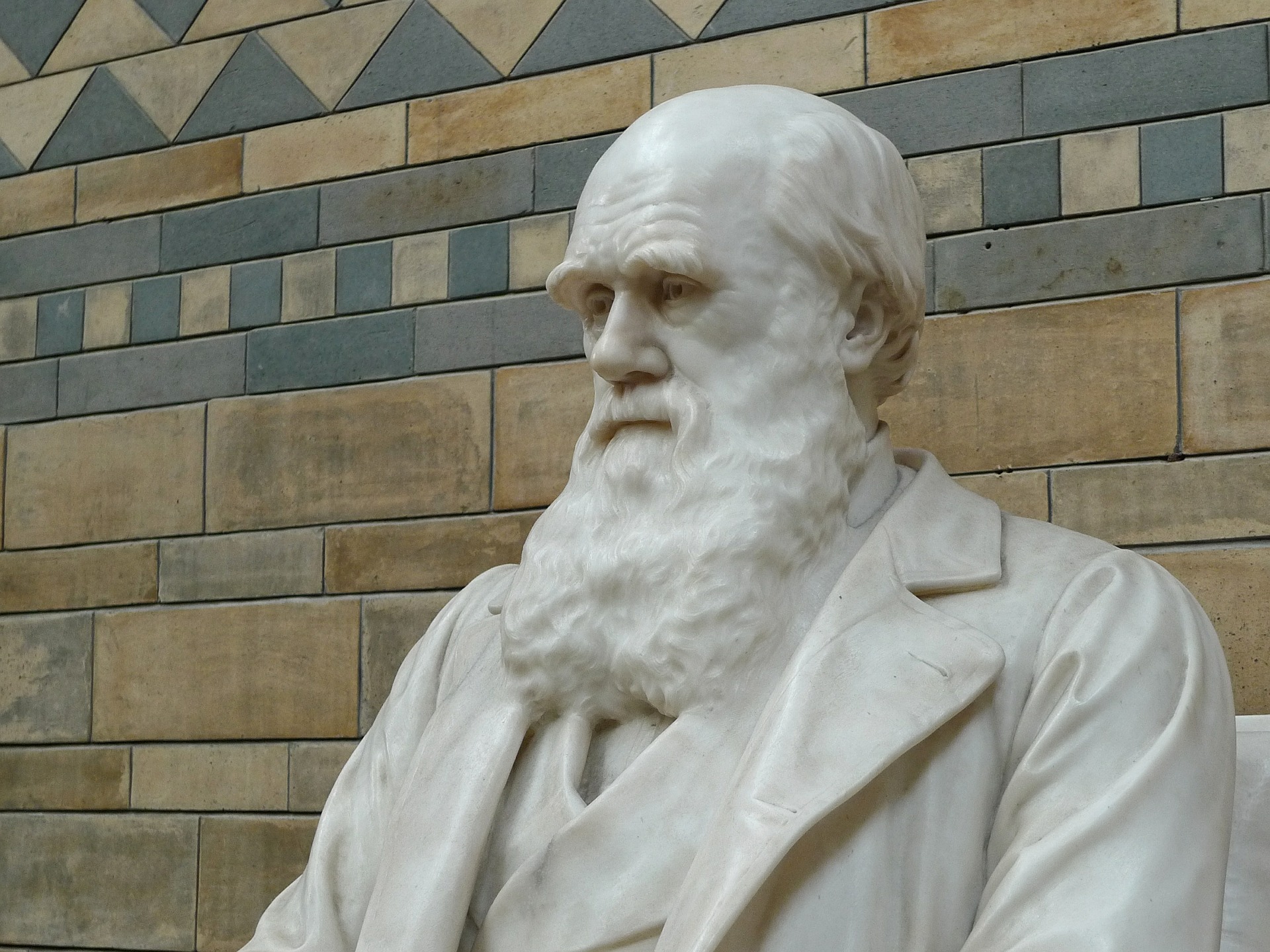I will begin by offering my interpretation of the problem. In the Declaration, the Continental Congress affirms an account of justice that is grounded in the laws of nature and of nature’s God. The content of that account includes the basic moral principle that all men have an equal right to life, liberty, and the pursuit of happiness; and also the political principles that governments are created to secure those rights and derive all their powers from the consent of the governed. The Declaration does not say how the moral and political principles are derived from nature or human nature specifically. I think that you would identify rationality as the species-distinctive human characteristic. I would agree; however, it is not clear to me that the ability to derive “q” from “if p, then q” and “p” has any obvious moral consequences. Only when we replace “p” with “if you respect my rights,” and “q” with “I ought to respect yours” does rationality confer rights. While one person may be better at logic than another, all undamaged human beings are capable of completing that modus ponens and so “all men are created equal.”
Darwinian evolution is said to be irreconcilable with the above account because all men cannot be created equal if men are not created at all. Instead of separately created species each with its own species-specific traits, we get a blurred continuity between species. For the “faithful Darwinian,” a thoughtful scholar wrote, “the concept ‘human being’ is constructed arbitrarily for the sake of convenience.” Human beings differ from other animals only by degree and not by kind; consequently, human nature is not more real than the arbitrary collection of numbers from 38 to 47. I would point out that nominalism with regard to species may have been held by Darwin himself but is all but extinct among contemporary biologists. Almost no one doubts that species are real in some sense.
For this opening comment, I will confine myself to this point: even if it is true that the human mind differs from the minds of other animals only in degree (which I believe is not true), you could still defend the natural right doctrine of the founders. Suppose we can measure mammalian intelligence on a scale from one to one hundred. Suppose we determine that a score of 77 is sufficient to confer the capacity to vote in an election. Is it not entirely probable that all human beings will be above that line and all non-human mammals below it? It doesn’t matter that some human beings will score in low eighties and some near 100. Voting is like one of those height lines before a Disneyland ride: you either get to ride or you don’t. I would suggest that the same is true for the fundamental rights mentioned in the Declaration. There are a range of theories about species in modern biology. Would it not be better for someone who wants to defend the Declaration to show that it is consistent with all or almost all of them?
KEN BLANCHARD

Thanks, Ken, for getting this discussion started.
I would like to begin by adding to your interpretation of the Declaration. The list of facts (grievances) in the document shows that our founding fathers made numerous appeals for justice to the British Government, which were either ignored or denied. Their only recourse was to appeal “to the Supreme Judge of the world for the rectitude of [their] intentions.” They appealed to a law which, in their view, is superior to and a measure of the laws of any particular civil government. This “Law of Nature” does not, therefore, come to be from the mutual agreement of contracting parties. Rather, it is a law that is discovered by examining what human nature is and what it is ordered to.
Aristotle’s Nicomachean Ethics is a good example of this. He begins and ends this treatise with a discussion of happiness — the motive for human acts. Our desire for happiness is so natural that it is not even a matter of choice; only the means to happiness are deliberated and chosen. Aristotle argues that happiness not only consists in having food, shelter, family, and friends, but also the acquisition of the moral and intellectual virtues which are the perfections of human life. Finally, happiness consists in using our highest faculty with regard to its highest object, i.e., the contemplation of God. Obviously, only a rational creature can know (or ought to know) what its ultimate end is and choose to order its actions to this end. Our actions are moral or immoral in light of such principles. No other animal has this capability.
The problem with Darwinian evolution is threefold: 1) there is a deliberate attempt on Darwin’s part to separate the evolutionary process from divine providence. Darwin repeatedly says, “How inexplicable are these facts on the ordinary view of creation.” There is no question that the theory has been used to promote atheism. Nevertheless, I admit that one could hold to some other theory of evolution without denying God’s existence and his providence over creation. 2) the notion of species and its correlate, nature, becomes so obscured as to be almost lost. If there is no such thing as human nature, how can we talk about what is perfective of it? 3) there is a tendency to understand morality as part of the evolutionary process itself. According to E.O. Wilson (Sociobiology, On Human Nature), moral sentiment is simply a product of our genes. Because we have evolved as a social species, we are programmed to have feelings of guilt when performing certain actions; it is instinct, not reason. What distinguishes man from other beasts, they say, is that man is the only animal that is aware of his own evolution. With this awareness we can rise above those feelings, beyond the notions of good and evil. Since evolution is the product of chance mutations, man is but a hiccup in time. There is no purpose or end that we are ordered to, so we can decide for ourselves what is just and unjust.
I agree that we can look at man as he is, not as he came to be, and come to better judgments about these matters as Aristotle did, but Darwinians think everything ought to be understood in light of evolution.
THOMAS J. KAISER

Thanks for the thoughtful response. I emphatically agree with your first paragraph. Natural rights are not positive rights; they are natural because they are discovered in human nature. I would note that there is a difference between appealing to “the Laws of Nature and of Nature’s God” in order to justify American independence and “appealing to the Supreme Judge of the world for the rectitude of our intentions.” The former indicates demonstrable principles; the latter, intentions which are invisible to others and can be indicated by swearing by an invisible Power.
I also agree with your second paragraph. Yes, happiness is more than food, shelter, etc. While it depends on the necessities, it goes far beyond them and only human beings are capable of it. Aristotle says much the same thing about the political community in his Politics: while the polis comes to be for the sake of mere life, it exists for the sake of the good life. In other words, the forces that are responsible for the origin of political life can be distinguished from the uniquely human good that is possible because of the political community. There are two senses in which justice can be said to come to be or exist by nature: either it emerges regularly, out of natural processes, or it complements or even completes human nature. Aristotle recognized that while the city is not among the former things, because it requires human deliberation to realize it, it is among the latter. This is why founders are to be praised.
With regard to your three objections to Darwinism: 1) Darwinism can be used to support atheism no more nor less than astronomy, physics, and biology in general. I dare say the same is true of classical philosophy. Unless one is prepared to reject science and philosophy in toto, that is a tension one must live with. I would point out that any principles of natural right must be derivable from evidence found in nature by means of unassisted reason; otherwise, it is divine rather than natural right. I have heard it said that some of the commandments in the Decalogue are the one and some are the other.
2) As Aristotle distinguished between the four basic causes (material, efficient, formal, and final) so modern biology distinguishes between different understandings of the term species. I think it is true that Darwin leaned toward nominalism at the end: the view that species are merely artificial concepts defined for convenience. Darwin has been dead for 135 years. Almost no one in biology today is a pure nominalist. The great philosopher of biology, Ernst Mayr, championed the biology species concept. A species is a group of interbreeding or potentially interbreeding organisms. By that account, human beings are certainly a real and distinct species. I suspect that you want an essentialist account of species: all members of species A have exactly this set of properties and all individuals who have that set are members of species A. Essentialism has been largely rejected by biology because it simply doesn’t apply to a lot of organisms, including plants and bacteria. That doesn’t mean, however, that you can’t have an essentialist description of some species. For example: if and only if it’s a mammal and it’s capable of powered flight, then it’s a bat. Likewise, if and only if it is a mammal with the power of logos, then it’s a human being. Aristotle warns us in the Nicomachean Ethics not to expect the same precision in moral philosophy that we expect in purely theoretical sciences. If we want to derive natural rights from nature, we need an account of human nature that is definite and stable enough for all practical moral and political purposes. I see nothing in contemporary biology to suggest that we do not have that.
3) You attribute the following view to E.O. Wilson: “Because we have evolved as a social species, we are programmed to have feelings of guilt when performing certain actions; it is instinct not reason.” You attribute this view to Aristotle: “Our desire for happiness is so natural that it is not even a matter of choice; only the means to happiness are deliberated and chosen.” I fail to see the difference. Human beings may be more than animals (I think that we certainly are) but we are at least animals. Our moral emotions, like our stereoscopic vision and opposable thumbs, are products of evolution. This doesn’t change the fact that those emotions have rational elements. If I am angry I am angry about something, and if I feel guilty I feel guilty of something. These moral emotions were shaped by natural selection because they are obviously functional: they allowed us to live together with large groups of cooperators. We also have logos, which allows us (alone among the animals) to distinguish between what we want to do and what we ought to do. We can cross examine our own emotional judgments and reason abstractly: what should person A do in situation Y? The end that governs our moral reasoning, as Aristotle pointed out in the Nicomachean Ethics, is the good life. It is precisely because we are, by our evolved nature, moral and political animals that we cannot do whatever we want to do.
KEN BLANCHARD

I agree with the first paragraph of your response. I cited the line from the Declaration regarding the appeal to the Supreme Judge to support the notion that the founders see the Law of Nature as coming from God even though it is discoverable in our own nature. They also mention in the last line their reliance on the protection of divine Providence.
Regarding the second paragraph, it is interesting that Aristotle not only sees man as naturally social, as E.O. Wilson might, but he also sees man as naturally political (Politics, Bk.1, Ch.2)
1) It is true that one might try to use the other natural sciences to support atheism, but Darwin sets out as his purpose in the Origin to argue against “special creation.” His arguments have the effect of arguing against creation all together. Evolution seems to be understood by most people as an alternative to creation. This just doesn’t come up so explicitly in the rest of natural science.
I certainly do not reject modern science or even the possibility of evolution. The co-founder of the theory of evolution, Alfred Russel Wallace, published The World of Life in 1911 disagreeing with Darwin, Huxley, Haeckel, et. al., who held that evolution is a blind process with no end intended by some Mind. Wallace takes it as almost obvious that the evolutionary process is guided by an intelligence. This view is more compatible with the Declaration.
2) Ernst Mayr is very explicit about rejecting the notion of essence. In One Long Argument he claims that essentialism is not only an impediment to the idea of evolution, it is incompatible with it. The biological species definition is operational, i.e., it helps us to draw the lines, but it is not really a definition of species. At least this much is true, it doesn’t refer to some common essence, it refers to a population. In this way it is not even something that can be predicated of an individual of a given species. I can’t say Ernst is a man if man is a population. I grant that common essences may be difficult to distinguish in nature; I would be a lumper rather than a splitter. However, the denial of essence is a denial of nature and this is disastrous when it comes to Ethics and Politics.
3) Our desire for happiness is innate, but our knowledge of what happiness is and how to achieve it is not innate. Animals have an innate knowledge (instinct) of what to pursue and avoid and how to acquire the necessities for their individual good and for the perpetuation of their species. Granted that man has some instincts which are especially necessary during infancy, we have to learn how to survive and learn what is necessary for the good life. My experience watching my own children and grandchildren grow is that they don’t feel guilty for something they don’t know is wrong. Furthermore, I don’t hold them morally responsible until they have reached an age where they ought to know how they should be ordering their lives. Before they reach that age we habituate them to do the right things and we explain to them why when they are able to understand. I agree that we are not disembodied intellects, but I also agree with Aristotle that the moral virtues are acquired by repeated action in order to form a habit. This habit formation involves the lower appetites (passions, emotions) becoming subject to reason so that they are not only are governed by reason but we take pleasure in that proper order. So I don’t think morality is genetic, although we may have predispositions to virtue.
THOMAS J. KAISER

This conversation is continued and concluded in Part II.
Ken Blanchard is Professor of Political Science at Northern State University.
Thomas J. Kaiser is a Senior Tutor at Thomas Aquinas College.


